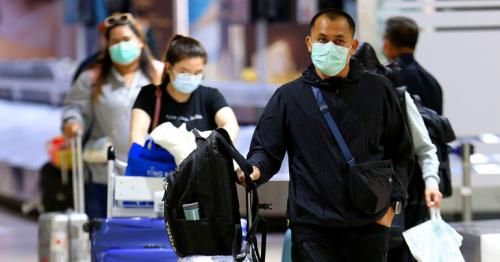How Greece’s crisis is helping it bend the COVID-19 curve
After a decade-long economic crisis, the first signs of a recovery were finally starting to emerge for Greece.
But the coronavirus pandemic swiftly brought this to an end. Greece found itself confronted with a potential public health disaster on its hands, as a highly contagious virus collided with a teetering public healthcare system picked apart by years of austerity.
The first case of coronavirus was reported on February 26. Spooked by the brutal death toll in neighbouring Italy, the authorities took no chances. Within two weeks, Greece shut all educational institutions, followed by the closure of bars, restaurants, museums, retail outlets, parks, commercial beaches and gyms.
The first death was recorded on March 12. Twenty-six days after the first case was reported and with deaths totaling 15, full lockdown measures were brought into force. The government plans to gradually ease those restrictions as of May 4.
Extensive media campaigns were rolled out encouraging people to stay at home, accompanied by hefty fines for breaking the rules. Dozens of public services which traditionally involved hours of fruitless queuing were moved online practically overnight.
Competent crisis management
Since then, barring a few clusters, the Greek coronavirus curve has managed to remain relatively under control. The country hit day 50 of its outbreak on April 15 with a total of 2,192 cases and 102 deaths. By contrast, on day 50 of its outbreak which fell on March 20, Italy had recorded 41,035 cases and 3,407 deaths according to the WHO. Spain, which hit day 50 on March 20, recorded 17,147 cases and 767 deaths.
Intensive care unit (ICU) cases, considered a good indicator of where a country stands on the curve, appear to have peaked on April 5 at 93 patients and have been gradually declining ever since. An average of three deaths per day have been recorded since the first death.
"The lockdown was imposed much earlier than in most countries in the western world," George Pagoulatos, a political economist who heads the Hellenic Foundation for European and Foreign Policy, said. "The government reacted in a very competent manner, listening to the right people and making the right judgement, especially given the lack of a strong precedent but also in terms of communicating the decision and keeping people in their homes."
Greeks reacted to the lockdown with surprising compliance — a legacy of the economic crisis, Pagoulatos said.
"Greece has been in an almost non-stop crisis mode, so society was better prepared to enter a state of alert as opposed to the complacency it found itself in 2009. Very few segments of society were not affected by the crisis, so there is a collective immunity to complacency."
Family structures
The structure of society may also have a role to play. "The observance of rules is aimed primarily at helping the elderly stay alive, since most Greek families have active elderly members living close-by," Dr Alexia Liakounakou, who teaches at University College London and wrote her PhD on contemporary Greek society, said. "The majority of the Greek population truly grasps the extent to which the country is ill-equipped to handle such a crisis if it were to get out of hand."
While the management of the crisis so far looks successful, the economic cost to Greece will be substantial. The IMF has warned that Greece could be hardest hit in the eurozone with a drop of 10 per cent of GDP. The OECD was even more pessimistic with the impact reaching up to 35 per cent. Unemployment , which stood at just over 16 per cent in January, is expected to jump to 26 per cent.
To recover, support will be needed from European partners, stressed Maria Demertzis, Deputy Director at the economic think-tank Bruegel, including the European Central Bank's decision to accept Greek government bonds as collateral.
"It's very good news because it allows Greece to tap into the market at reasonable prices. At least in the immediate future, the issuance of more debt is not going to be a problem. The most important thing is to contain the disease," she said.
"It is extremely bad luck for Greece to face this just as it was coming out of a 10-year downward spiral," she added. "It's important not to lose the momentum of reform, the momentum of re-establishing trust because that took a huge hit."
Post-coronavirus opportunities
As for the future, there may be opportunities hidden within the crisis. Pagoulatos said that now may be the time to diversify the core tourism industry, among others. "Greece has leapfrogged into digitalisation through this crisis, it opens an opportunity to develop sectors in technology such as cyber security and cloud computing."
Demertzis said that renewable energy and energy sustainability could be very important given Greece's enormous natural potential.
"It's a unique opportunity. It will be quite a big, long-term infrastructure investment and will serve so many different purposes," she noted.
Meanwhile, Greece's man of the hour, the softly spoken epidemiologist, Professor Sotiris Tsiordras, who heads the daily 6 p.m. coronavirus bulletin, remains cautiously optimistic but firm. In his April 23 address, as Greece approached day 60 of its pandemic, he said: "The situation remains good, but can quickly get out of hand. Let's not be complacent, let's not risk losing what we have gained. We need to further reduce the spread of the virus."
Share This Post






